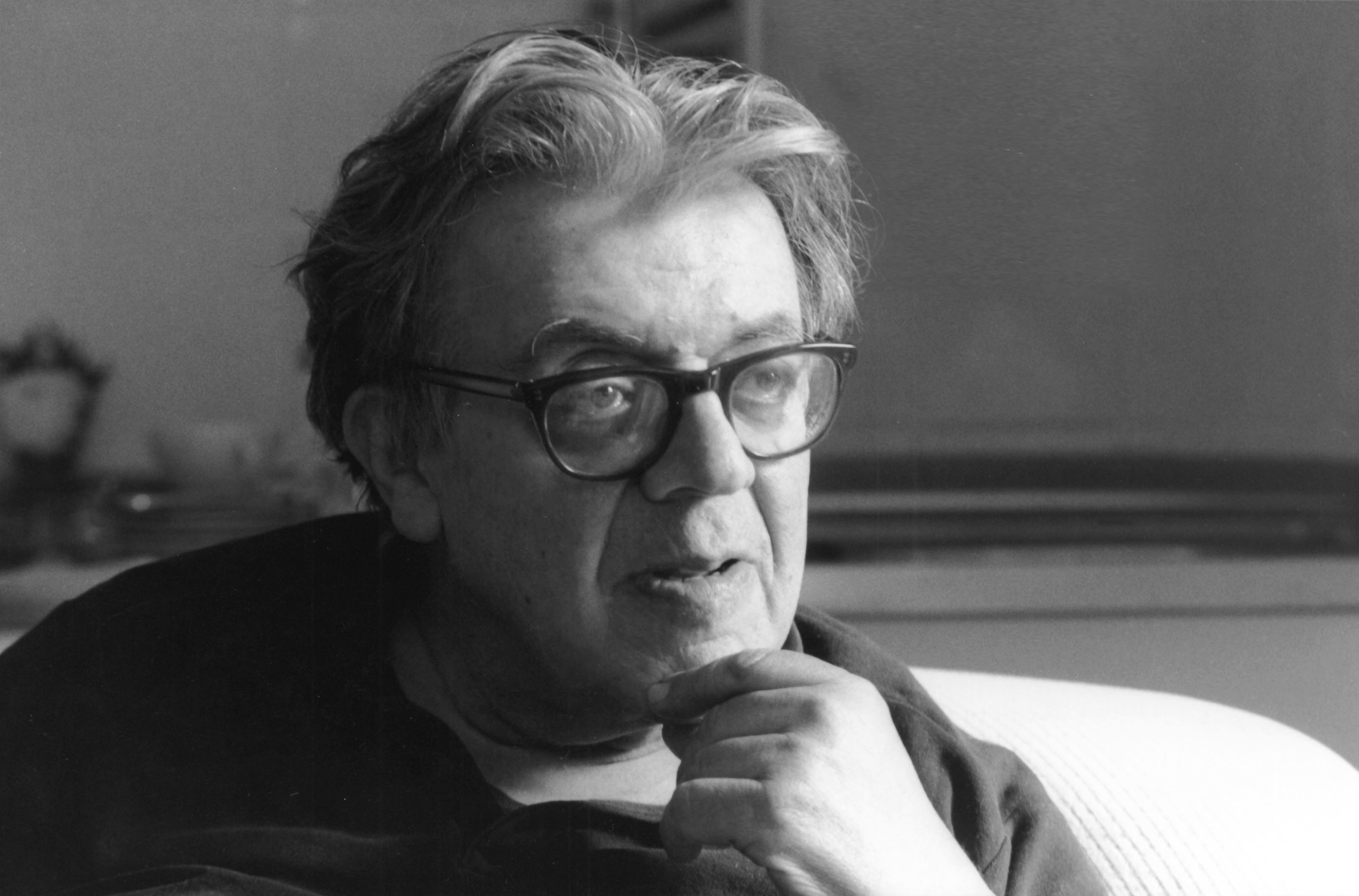Erich Fried [Austria/England]
1921-1988

Erich Fried was born Jewish in Vienna, Austria on May 6, 1921. He was a child actor and began writing at an early age. When his father was killed by the Gestapo during the Anschluss in 1938, Fried fled with his mother to England, working throughout the war as a librarian and a factory worker.
Fried also joined Young Austria, a left-wing emigrant youth movement, but left the group when it advocated Stalinist causes. He also translated Shakespeare, T. S. Eliot, and Dylan Thomas. He returned to Vienna for the first time in 1962.
Fried published several volumes of poetry, but also wrote fiction, drama, and radio plays, as well as political works, the last of which were controversial as he attacked the Zionist movement and various left-wing causes.
In 1982 he regained his Austrian nationality, but maintained a dual citizenship with the United Kingdom. Fried was also a member of the Graz Authors’ Collective.
Fried died of intestinal cancer in Baden-Baden, Germany in 1988, but is buried in the Kensal Green cemetery in London.
BOOKS OF POETRY
Deutschland: Gedichte (London: Austrian P.E.N., 1944); Gedichte (Hamburg: Claussen, 1958); Warngedichte (1964); Anfectungen: Füntzig Gedichte (Berlin: Wagenbach, 1967); Die Beine der grösseren Lügen (Berlin: Klaus Wagenbach, 1969); Befrelung von der Flucht: Gedichte und Gegengedicted (Düsseldorf: Claussen, 1968); Die Freiheit den Mund aufzumachen; achtundvierzig Gedichte (Berlin: Klaus Wagenbach, 1972); Gegengift: 49 Gedichte u. e. Zyklus (Klaus Wagenbach, 1974); Höre Israel!: Gedichte und Fussnoted (Hamburg: Verlag Association, 1974); Die bunten Getüme: 70 Gedichte (Berlin: Wagenbach, 1977); 100 Gedichte ohne Vaterland (1978); Liebesgedichte (Berlin: Klaus Wagenbach, 1979); Ganz oben leichte Vögel: Gedichte (Hattingen/Ruhr: Flieter-Verlag, 1982); Es ist was es ist: Liebesgedicht, Angstgedichte, Zorngedichte (Berlin: Klaus Wagenbach, 1983); Beunrhigungen: Gedicte (Berlin: Klaus Wagenbach, 1984); In die Simme einradiert: Gedichte (Koln: Bund-Verlag, 1985); Als ich mich nach dir verzehrte: swelundsiebzig Gedichte von der Liebe (Berlin: Klaus Wagenbach, 1990); Einbruch der wirklichkeit: versteute gedichte 1927-1988 (Berlin: Klaus Wagenbach, 1991)
ENGLISH LANGUAGE TRANSLATIONS
Last Honours, trans. by Georg Rapp(London: Turret Books, 1968); On Pain of Seeing, trans. by Georg Rapp (London: Rapp and Whiting, 1969/ Chicago: Swallow Press, 1969); selection in Four German Poets (New York: Red Dust, 1979); 100 Poems without a Country, trans. by Stuart Hood and Georg Rapp(London: John Calder, 1978/New York: Red Dust, 1980); Love Poems (Paris: Calder Publications, 1991)
Soap Bubbles
I grasped at
a straw
and blew bubbles of
politicians
generals
and policemen
They shimmered
puffed up
in all colors
but they burst
when they
were touched
A policeman
that I told this to
without touching him
touched me
with his truncheon
so that I burst
—Translated from the German by Milne Holton and Herbert Kuhner
Advantages of Nudism
Naked fear
now seems
easier
to bear
than
it used to be
with heavy
clothing
covering it
—Translated from the German by Milne Holton and Herbert Kuhner
Speechless
Why
do you still
write poems
although you know
that you can only
reach a minority
with this method
my friends ask me
impatient that
they can only
reach a minority
with their methods
and I can’t
give them
an answer
—Translated from the German by Milne Holton and Herbert Kuhner
_________
English language copyright ©1985 by Milne Holton and Herbert Kuhner. Reprinted from Austrian Poetry Today, ed. and translated by Milne Holton and Herbert Kuhner (New York: Schocken, 1985).